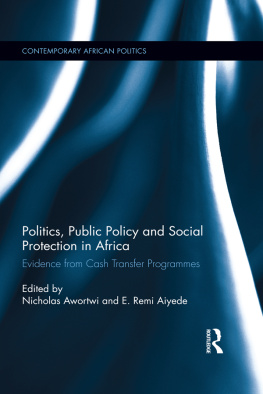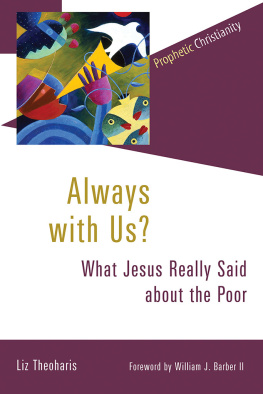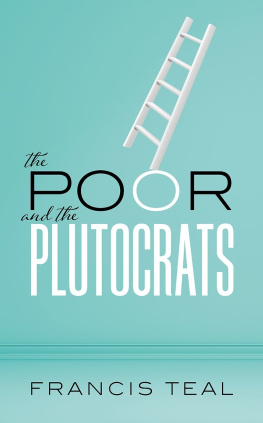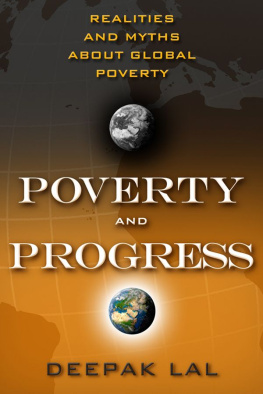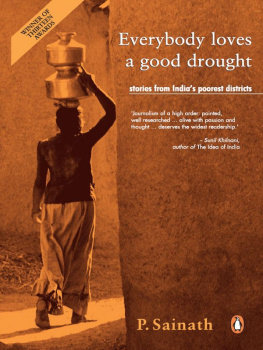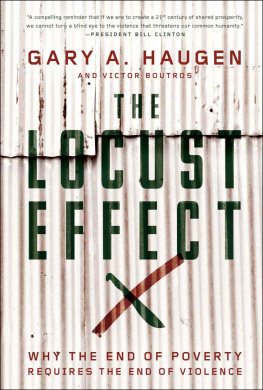Praise for this book
After 50 years of development, the number of Africans living in dire poverty remains tragically and disgracefully high. This book brings together important new insights on the understanding that outsiders themselves must achieve before they can begin to think about reaching the poorest and changing their reality.
Ian Smillie, author of Freedom from Want and Diamonds
If responding to extreme poverty was easy or obvious, the world would surely have figured it out by now. But it's neither easy nor obvious, so we need the types of context-specific insights exemplified by these excellent chapters, which are grounded in an informed dialogue between careful research, hard-won experience and ethical advocacy.
Michael Woolcock, World Bank and Harvard University
What Works for Africa's Poorest
Programmes and policies for the extreme poor
Edited by
David Lawson, Lawrence Ado-Kofie and David Hulme
Practical Action Publishing Ltd
The Schumacher Centre,
Bourton on Dunsmore, Rugby,
Warwickshire, CV23 9QZ, UK
www.practicalactionpublishing.org
Practical Action Publishing, 2017
The right of the author to be identified as author of the work has been asserted under sections 77 and 78 of the Copyright Designs and Patents Act 1988.
All rights reserved. No part of this publication may be reprinted or reproduced or utilized in any form or by any electronic, mechanical, or other means, now known or hereafter invented, including photocopying and recording, or in any information storage or retrieval system, without the written permission of the publishers.
Product or corporate names may be trademarks or registered trademarks, and are used only for identification and explanation without intent to infringe.
A catalogue record for this book is available from the British Library.
A catalogue record for this book has been requested from the Library of Congress
ISBN 9781853398438 Hardback
ISBN 9781853398445 Paperback
ISBN 9781780448435 Library Ebook
ISBN 9781780448442 Ebook
Citation: Lawson, D., Ado-Kofie, L., and Hulme, D.(eds) (2017) What Works for Africa's Poorest : Programmes and policies for the extreme poor, Rugby, UK: Practical Action Publishing,
Since 1974, Practical Action Publishing has published and disseminated books and information in support of international development work throughout the world. Practical Action Publishing is a trading name of Practical Action Publishing Ltd (Company Reg. No. 1159018), the wholly owned publishing company of Practical Action. Practical Action Publishing trades only in support of its parent charity objectives and any profits are covenanted back to Practical Action (Charity Reg. No. 247257, Group VAT Registration No. 880 9924 76).
The views and opinions in this publication are those of the author and do not represent those of Practical Action Publishing Ltd or its parent charity Practical Action. Reasonable efforts have been made to publish reliable data and information, but the authors and publisher cannot assume responsibility for the validity of all materials or for the consequences of their use.
Cover photo: Sorting site near Dandora dump, Nairobi, Kenya, where shredded waste plastic is cleaned and foreign materials like small metal pieces are removed with magnets.
Copyright: Sven Torfinn/Panos
Cover design: Mercer Design
Typeset by vPrompt eServices, India
Printed in the United Kingdom
This book has arisen out of an earlier collaboration between David Lawson and David Hulme when working with the Chronic Poverty Research Centre (CPRC) and Brooks World Poverty Institute (BWPI) at the Institute for Development Policy and Management (IDPM), University of Manchester. From that collaboration we produced What Works for the Poorest? (Practical Action, 2010) with our colleagues Imran Matin and Karen Moore. That book looked at programmes to assist the poorest from across the world, but with a particular focus on South Asia.
Having spent considerable parts of the last 25 years living, working, and researching in some of the poorest communities across 15 sub-Saharan African countries, David Lawson was keen to highlight examples of programmes in Africa that have sought to improve the life prospects of extreme poor people and developed the idea of producing another what works for the poorest collection focused on sub-Saharan Africa. David Hulme, with over 40 years of development experience, and Lawrence Ado-Kofie were recruited to collaborate on this project, and a meeting in London on 13 January 2014 provided an opportunity for the authors to review each other's chapters and take the publication forward. Many thanks to Rory Brooks at MML Capital for making available MML's boardroom and generously hosting that meeting.
Our book cannot claim to be comprehensive, but it does seek to raise awareness of the hundreds of millions of people still trapped in extreme poverty in Africa and to strengthen understanding of the forms of practical action that can support their own efforts to improve their lives. It is also unique, as with the prior volume of What Works for the Poorest?, in that we bring together academics, policy practitioners, and policymakers to hear their voices of what works for the poorest.
A large number of people and organizations have made the London workshop and book possible. Particular thanks to Rory Stanton at the Global Development Institute (GDI), who pulled the final manuscript together and did a thorough edit that greatly improved the text. Special thanks to Denise Redston and Julia Brunt at GDI for logistical support. Many others also provided support: to all of them our sincere thanks. We also acknowledge the financial assistance of GDI.
Last but not least, our gratitude to the many poor and very poor people in Africa who, over the years, have helped the authors and editors of this collection to understand the nature of extreme poverty and the indomitable spirit of the world's poorest to improve their lives, create better prospects for their children, and achieve social justice.
David Lawson, Manchester, June 2016
David Hulme, Manchester, June 2016
Lawrence Ado-Kofie, Manchester, June 2016
When I was growing up in Uganda, the cleverest girl I knew was called Agnes. Agnes was always top of the class despite the times she missed school because she had to care for a sick family member, collect water, or harvest crops. But Agnes never made it through secondary school. She was poor, she was a girl, and she was a refugee from Rwanda. As good as my school system was for me, it couldn't break down those three barriers for her and I am saddened when I think of where Agnes probably is now: still very poor, still working very hard to look after her family.
It is surprising how rare and even radical it is even in development circles to ask what really works for the poorest such as Agnes. Working to reach the poorest involves considering multiple layers of exclusion and deprivation as well as trade-offs between competing groups. It is a complex area.
But of course there is no justification for leaving anyone behind, or for believing that the poor will catch up in time. Poverty figures from the World Bank indicate that significant numbers of people are likely to remain in chronic poverty after 2030, and also that widening inequality is making efforts to overcome poverty more difficult.


